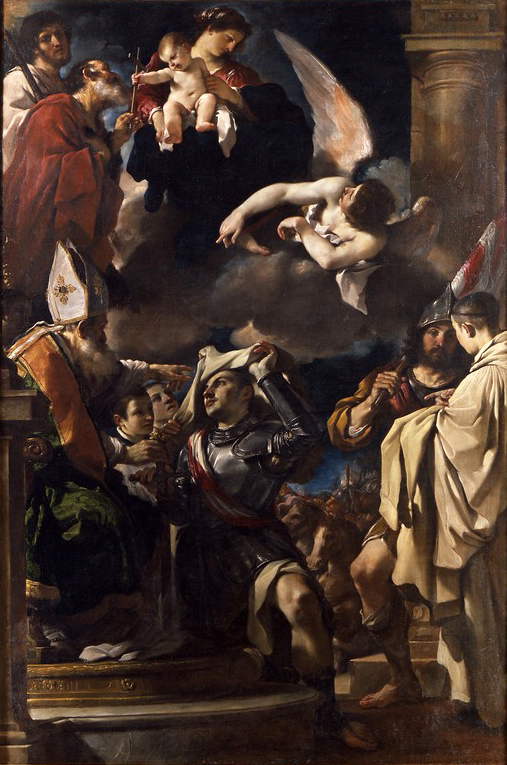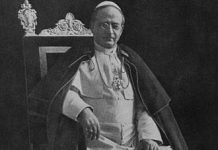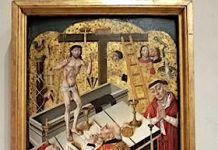William of Gellone (ca. 755 – 812) had two phases to his life: He began as a warrior knight of the Carolingian era in France, and he was related to Charlemagne himself, perhaps a cousin, the nephew of Charles Martel, who was Charlemagne’s grandfather (some of the lineage is historically obscure). Like Martel, the ‘Hammer’, who crushed a vast force of Umayyad Muslims at the Battle of Tours in 732, saving France and Europe, William three decades later had to fight the Saracens, another branch of militant Muslims who once again sought the domination of Europe.
In 793, Abd ar-Rahman declared a ‘holy war’ against Christians, amassing a force of 100,000 men, against which William and his armour-clad knights marched. To paraphrase an old saw, it’s not how much of an army with which you come to the fight, it’s how much fight is in your army. Like his uncle, William handed the horde their derrieres. But the Saracens regrouped, and at next battle defeated William, but the victory was pyrrhic – the Muslims suffered such heavy casualties from the Frankish warriors that they retreated, beaten and bruised, back to Hispania.
Christians back then, and until recently, realized what Islam was, and that for which it strove. As Mohammad said, it will dominate, and not be dominated. Certainly, many adherents of the religion may be pleasant, amicable, good neighbours and so on. But Islam as an historic, global and primarily spiritual force is implacable – which literally means ‘unable to be placated’. Not so much a religion of peace, but, again, as very term Islam itself implies, ‘submission’. If you’d rather not submit – realizing that such would lead to the destruction of our Christian civilization as well as the imperiling of your immortal soul – well, as William saw clearly, para bellum – prepare for war. That said, Islam hardly has to fight anymore, as demography wins the day. Those who have children will eventually dominate those who don’t have children – and Western civilization, by and large, has stopped reproducing.
That said, there are other, and in the end more effective ways to fight than with swords, armour, and now, guns, missiles and bombs. For as Christ implied, our battle is primarily a spiritual one, against principalities and powers. In 804, William used his wealth to found a monastery in Gellone, in the beautiful southern coast of France, not far from the Mediterranean, which still stands to this day. It was here that, two years on, in 806, William the warrior hung up his sword and chain mail, and retired to spend the final six or so years of his life as a monk, in prayer and penance.
Whatever defensive means we must employ in this fractious world, we should seek not so much domination of Islam, but rather conversion, that they come to see the fullness of truth, and accept Christ as their true Saviour.
Legends galore were told of William, and his life and exploits are the subject of many chansons de geste. He is often referred to as Fierabras – ‘strong of arm’. His tomb became a popular place of pilgrimage in the monastery at Gellone, especially on one of the routes to Santiago de Compostela. Perchance, Deo volente, I shall visit one day, if it has not been razed by then. If God has kept it intact for 1200 or so years, we can hope for a few more.
We can also pray for a few more good men, such as Saint William of Gellone, now a rare breed indeed in a France now run by the likes of Macron.
May the good saint intercede for us all, that we, especially the men amongst us, that we find, and are given, the strength and courage to engage manfully in whatever battles to which we are called. +












